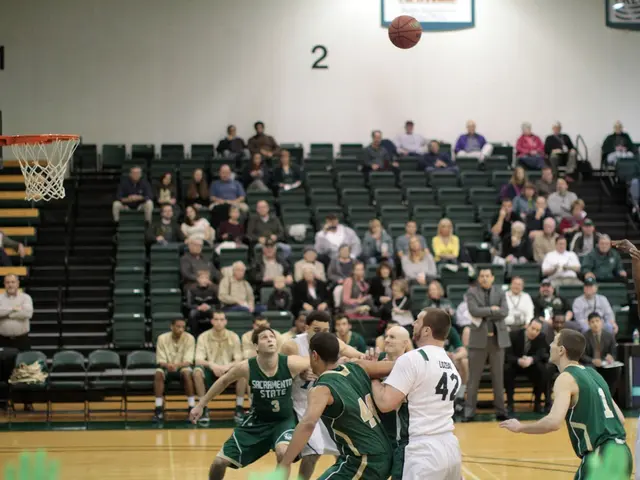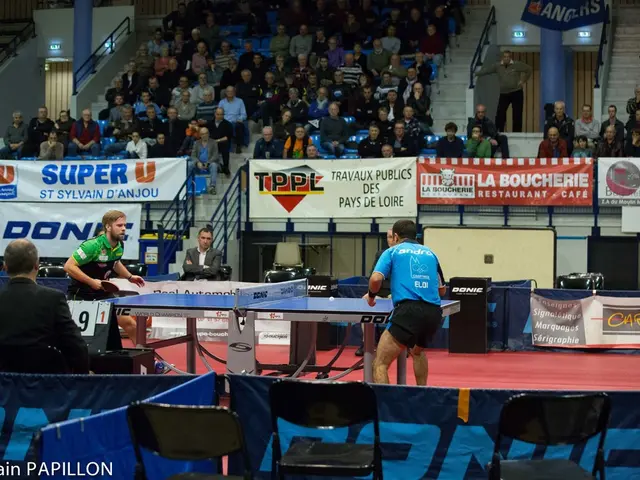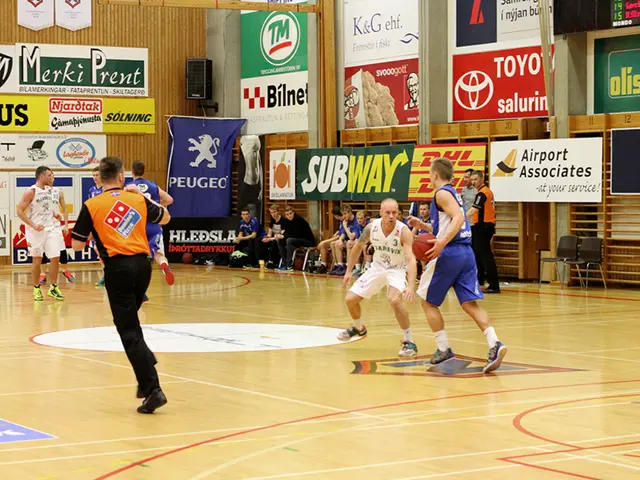Youth Basketball Sexual Abuse Allegations: Riverside's Defense Under Fire
In a significant development in a longstanding sexual abuse allegation case, former players of the Riverside Hawks basketball program, based in New York City, have challenged the Riverside Church's motion for summary judgment. The lawsuit, initially filed in 2020, alleges abuse by the program's founder, Ernest Lorch.
Three plaintiffs, including Robert L. Holmes, who first publicized the allegations in 2002, have submitted memoranda opposing the church's motion to dismiss the case. The lawyers representing the 15 plaintiffs assert that Riverside Church missed the mark in its argument, which attempted to dismiss the case due to lack of knowledge or reason to suspect Lorch's abusive acts.
The players involved in the lawsuit were part of the Riverside basketball program between 1970 and 2000, as the team was becoming renowned for producing hundreds of college players and dozens of NBA stars. Holmes and the other plaintiffs claim they were minors during the alleged abuse, and they can bring the lawsuit now due to the New York Child Victims Act, which extended the statute of limitations for survivors of child sexual assault.
Riverside Church had initially sought summary judgment from Judge Sabrina Kraus in New York, arguing that its officials neither knew nor had reason to know of Lorch's abusive acts. The church also claimed it did not owe a duty in loco parentis—meaning it did not have the responsibility of a parent when supervising children. However, Holmes and his fellow plaintiffs argue that the relevant issues are quite different and urge the court to deny summary judgment.
Holmes' memorandum criticizes Riverside for its "supposed ignorance" about Lorch, who was a volunteer at the Riverside hoops program for nearly four decades. The church suspended Lorch from coaching in 2002 following Holmes' public disclosure of abuse. In 2010, another plaintiff's testimony led to Lorch being indicted on sexual assault charges in Massachusetts, although the charges were never tried due to Lorch's poor health before his death.
The plaintiffs' filings highlight that 26 other men have raised similar allegations, arguing that it "defies credulity" for Riverside to claim it was unaware of the abuse. They contend that Riverside had both "actual and constructive notice of the abuse" and cannot meet its burden for summary judgment. The plaintiffs' lawyers reference thousands of pages from 25 transcripts implicating Riverside.
Riverside has the right to challenge the veracity and accuracy of these transcripts, but the plaintiffs argue that the church must do so with specificity. The plaintiffs' memorandum also points out that hearsay may be considered in opposing a motion for summary judgment.
The memorandum further disputes Riverside's characterization of precedent regarding in loco parentis. The plaintiffs' lawyers argue that this distinction doesn't end the legal analysis, as Riverside should be viewed as having the same requirements for supervising children, given that it operated a basketball program overseeing children "several nights a week."
Judge Sabrina Kraus will weigh the conflicting arguments. If she denies Riverside's motion for summary judgment, the case will proceed to trial. The case may still settle before trial, assuming an acceptable arrangement can be reached between the church, its insurance companies, and the plaintiffs. Furthermore, Judge Alexander Tisch will also be ruling on motions in the multiple Riverside lawsuits.
Additional context: Judge Alexander Tisch will also be ruling on the Riverside lawsuits.
The legal representatives of the basketball players, in their memoranda, assert that Riverside Church's argument for dismissing the case on grounds of lack of knowledge or reason to suspect the abusive acts by Ernest Lorch, the program's founder, is misguided, given the numerous allegations against him. In the realm of general-news and crime-and-justice, this case serves as an instance where the analysis of the court's decision hinges on whether Riverside Church had both actual and constructive notice of the abuse, and whether it can meet its burden for summary judgment, especially considering the operation of the basketball program several nights a week. Meanwhile, Judge Alexander Tisch, who will also be ruling on the Riverside lawsuits, awaits the conflicting arguments to determine the fate of the case, potentially leading to a trial or a settlement. In the world of sports, particularly basketball, this case stands as a significant example of how institutions can be held accountable for the safety and well-being of the young athletes under their supervision.








